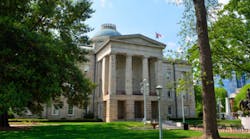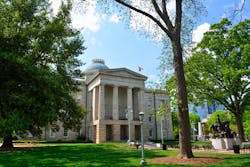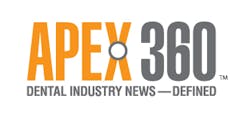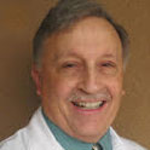North Carolina state dental board pushes for expanded recognition of specialty standing
News / Opinion-Editorial
The North Carolina State Board of Dental Examiners (NCSBDE)will hold hearings on June 7, 2018, for proposed changes to rules regarding dental specialty standing. If approved, the changes would go into effect on September 1, 2018, and expand recognition of specialist standing beyond the traditional definitions of the American Dental Association (ADA). Specialty standing would be extended to definitions provided by the American Board of Dental Specialties (ABDS) and the Royal College of Dentists of Canada (RCDC).
The training program protocols and requirements for certification in the dental specialist fields of the ADA, ABDS, and the RCDC are similar. However, the current specialty listings under the ABDS are slightly more expansive.
The proposed rules also would impact dentist advertising practices, over which the state dental board has regulatory authority. In recent years, federal courts have sided with the position of First Amendment commercial free speech in dentists’ advertising.
The proactive action by the NCSBDE is notable in that it was not the result of a federal court order or a protracted legal battle. Other state dental boards have limited recognition of dental specialties and restricted advertising of specialist standing to the specialist definitions of the ADA.
Comments from the dental industry
Attorney Frank R. Recker, DDS, JD
Attorney Frank R. Recker, DDS, JD, has provided legal counsel to groups such as the American Academy of Implant Dentistry, American Society of Dentist Anesthesiologists, American Academy of Oral Medicine, and American Academy of Orofacial Pain. Regarding the NCSBDE developments, Dr. Recker offered the following comments:
“I have litigated dental advertising and First Amendment issues for over 20 years, and this proposed regulation addresses all the concerns related to advertising as a dental 'specialist.'
“[The proposed NCSBDE rule change] recognizes that emerging new areas of dentistry will not, or could not, ever obtain postgraduate programs that would be 'CODA-accredited' [Commission on Dental Accreditation-accredited]. It also recognizes that limiting the advertising of dental credentials to those based upon some arbitrary formal educational requirements, such as 'one year formal postgraduate education,' has already been deemed unconstitutional in California by virtue of a 2010 federal court decision. It also recognizes the opinion of the Fifth Circuit Court of Appeals on the 'specialty' issue in 2017.
“The North Carolina proposed regulation continues the traditional recognition of ADA-'recognized' specialties, but also recognizes the ABDS as a bona fide specialty recognition entity. Going beyond that, it allows another pathway for specialty recognition by providing criteria for anyone who wants to advertise a proposed specialty that is not recognized by the ADA or ABDS, but might have credentials that fulfill their objective requirements for alternative specialty recognition.
“In short, I believe this proposed rule is reasonable and fair to dental professionals, provides for 'due process,' and most importantly, will give the public access to valuable information. The public is directed to the specific entities granting specialty recognition and can thereby obtain the specific requirements for that specialty, if they choose to do so.
"These represent the legitimate objectives of commercial free speech under the First Amendment: more truthful, objectively verifiable information for consumers upon which the public can make more informed decisions."
ABDS President and Cofounder Michael Mashni, DDS
Michael Mashni, DDS, a specialist in dental anesthesiology, is cofounder and current president of the ABDS. Dr. Mashni offered the following perspective:
“The North Carolina dental board’s decision to allow legitimate specialties to advertise is a welcome change. State regulations restricting advertising to only those specialties recognized by the American Dental Association have recently been ruled unconstitutional by federal courts.
“Dental boards that continue to restrict advertising of bona fide specialties are exposed to legal risk. The American Board of Dental Specialties (ABDS) recognizes certifying boards based on psychometric testing and rigorous standards. The specialties recognized by the ABDS should be allowed to advertise in North Carolina, as well as those states where the laws have been challenged. Indiana and Ohio currently have active lawsuits challenging the restriction of specialty advertising.”
NCSBDE Chief Legal Counsel Doug Brocker, JD
Doug Brocker, JD, chief legal counsel for the NCSBDE stated, “The proposed amendments would clarify the circumstances under which dentists in North Carolina can advertise as specialists or board-certified specialists. A dentist who has completed a postdoctoral advanced dental education program approved by CODA could continue to hold herself out as a specialist in that practice area. Additionally, a dentist who holds a current certification by a specialty board approved by several recognized entities, or an equivalent specialty board, can hold himself out as a certified specialist or board-certified specialist, provided the advertisement provides information about the certification criteria and the dentist maintains documentation of the specialty certification.
“The proposed amendment does not prohibit a dentist that does not qualify as a certified specialist from restricting his or her practice area, provided that any advertisements do not use the term certified specialist or any variation of it.”
American Dental Association
The ADA released the following in the interest of this report:
“The 2017 American Dental Association (ADA) House of Delegates established the National Commission on Recognition of Dental Specialties and Certifying Boards, charged to formulate and adopt procedures for the recognition of specialties and specialty certifying boards in accord with the Requirements for Recognition of Dental Specialties and National Certifying Boards for Dental Specialties and to grant or deny specialty recognition to specialty organizations and specialty certifying boards seeking recognition in accord with the Requirements for Recognition of Dental Specialties and National Certifying Boards for Dental Specialties. The ADA House of Delegates no longer grants or denies recognition to a dental specialty or certifying board.
"The National Commission will hold its inaugural meeting on May 9-10, 2018.”
Conclusion
From this author's perspective, statutes governing a dentist’s right to announce and advertise specialty standing are regulated at the level of individual state dental boards. Each state dental board is tasked with determination of which dental specialties are recognized and under which specific standards of certification. Obviously, a two-year academic postgraduate program is different than five weekends spent at a convention center for training.
There are different special interest groups that have concerns for outcomes. Lobbyist money and political arm-twisting cannot be discounted as influencing factors. Economic turf protection is in play. However, the NCSBDE has taken positive steps in serving the public interest to avoid costly and time consuming legal actions. They have examined issues of dental-specialty credentialing boards and the standards of those boards. They have reviewed case law on First Amendment commercial free speech in making proposed rule changes. The NCSBDE wants to take these decisions out of the hands of lawyers, judges, and juries. The work of the NCSBDE may well serve as a model to other state dental boards.
Editor's note: This article first appeared in the Apex360 e-newsletter. Apex360 is a DentistryIQ partner publication for dental practitioners and members of the dental industry. Its goal is to provide timely dental information and present it in meaningful context, empowering those in the dental space to make better business decisions.
Not a subscriber? Subscribe to the Apex360 e-newsletter here.
Dental news and press releases may be sent to Apex360 editors at [email protected]">[email protected].











